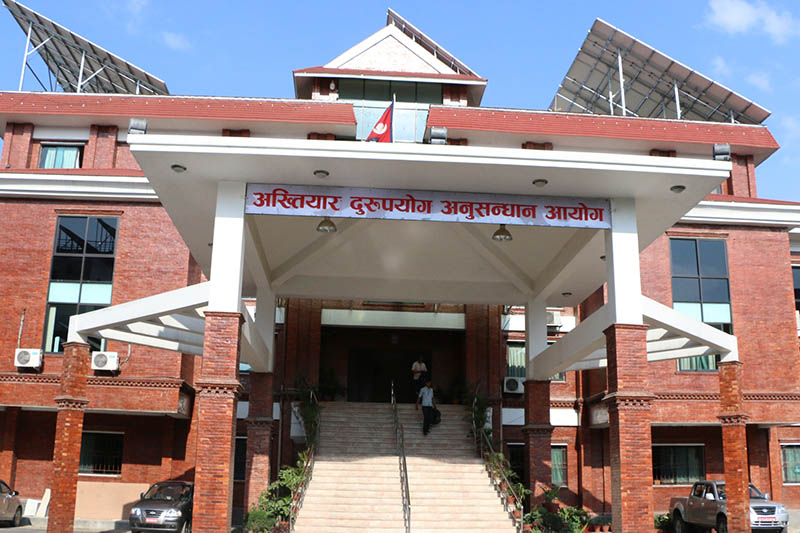‘Corruption rampant in public offices’
Kathmandu, February 8
The Commission for the Investigation of Abuse of Authority has categorically identified fourteen public offices, which are most corruption-sensitive and where services are denied without bribe.
According to a study on the Status of Corruption and Good Governance in Nepal recently conducted by the anti-graft body, the amount of bribe money to be offered or given to the concerned officials depends on the nature of service a service-seeker seeks.
The report stated that land revenue office, survey office, Inland Revenue office, municipality/rural municipality office, water supply office, district administration office, district education office, transport management office, district police office, district agricultural office, Nepal Telecom, land reform office, cottage and small industries office and road division office were top fourteen hubs of corruption respectively.
The CIAA said service-seekers were forced to pay bribe money for work relating to land registration, transfer of land ownership, land ownership certificate, and holding and release of land, among others, in various layers.
Similarly, employees of survey office are also notorious for corruption. Authorities in inland revenue office demand bribe money for tax valuation. Even elected representatives in the local levels are getting more corrupt. They take bribe for providing services such as issuance of certificate of personal events like birth, death and marriage.
In water supply office, employees refuse to provide meter reading service for water supply. Employees of district administration office seek bribe for issuance of passport and citizen certificate.
According to the report, corruption is rampant in transport management office for vehicle registration, issuance and renewal of driving licence, distribution and renewal of blue book and ownership transfer of vehicle. The study found that police personnel demanded bribe for arresting a crime suspect, conducting criminal investigation and issuance of police clearance certificate. Bribery is rampant in district agricultural office where the employees do not provide technical service, seed and agriculture subsidy without bribe money.
Nepal Telecom employee seek bribe in bill payment, SIM card distribution and Internet service. Land reform office seeks bribe for separation of land between the landholder and tenant. Cottage and small industries office takes bribe for registration and renewal of industry. Employee of road division office seek bribe for awarding tenders of road projects. During the study, 95 per cent of the respondents said they were aware of the reasons behind the growing corruption culture in public offices, while five per cent said they did not know anything about it.
A total of 32.4 per cent of respondents attributed rising corruption to political backing, 27.9 per cent (poverty and lack of education and awareness), 21.8 per cent (lack of transparency), 18.9 per cent (ineffectiveness of corruption control agencies), 13.7 per cent (low salary and high market price), 11.8 per cent (social tolerance to corruption), 10.2 per cent (no encouragement and respect to honest persons) and 18.5 per cent (all of the above reasons).
The 2018 Corruption Perceptions Index released by Transparency International on January 29 warned that the continued failure of most countries, including Nepal, to significantly control corruption is contributing to a crisis of democracy around the world. Nepal fell two notches to 124th position in 2018 from 122nd in 2017 out of 180 countries despite scoring equal points of 31.






